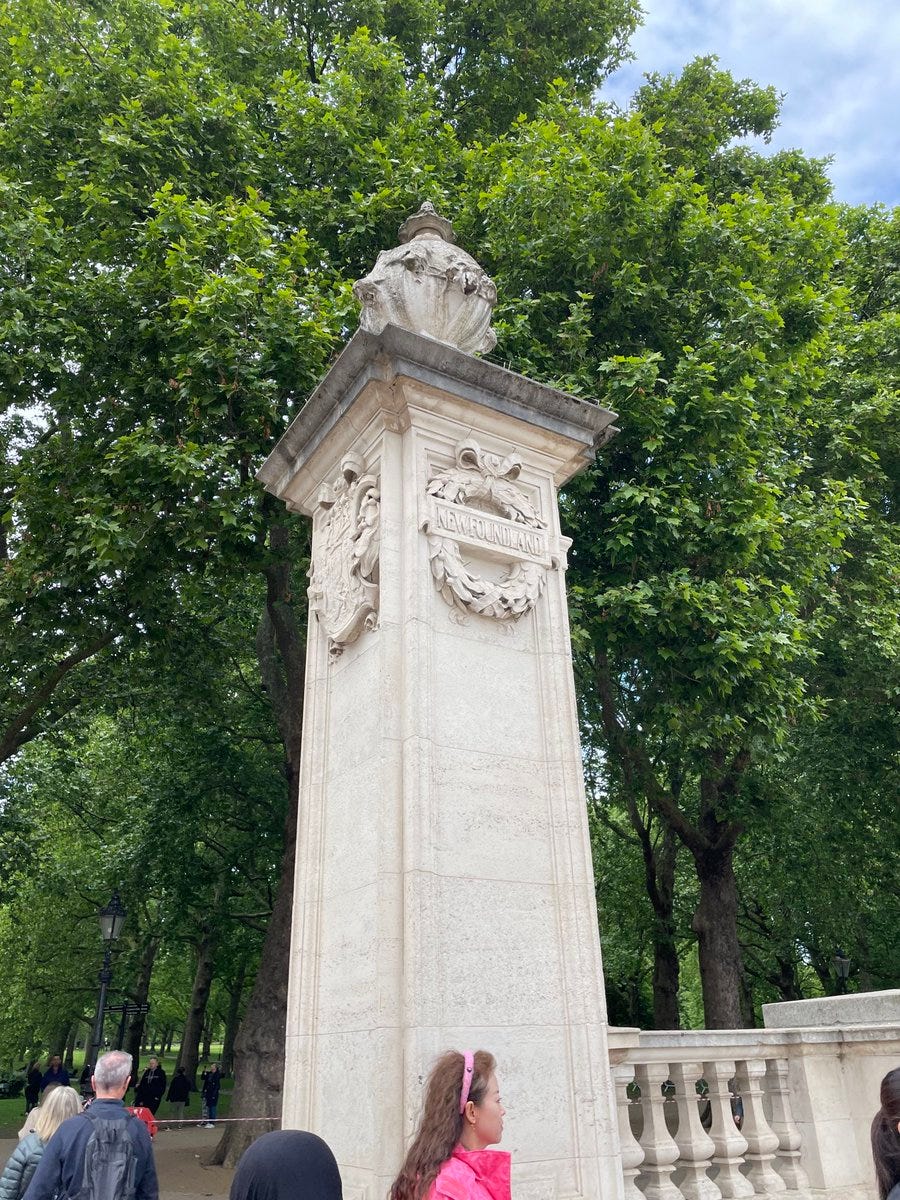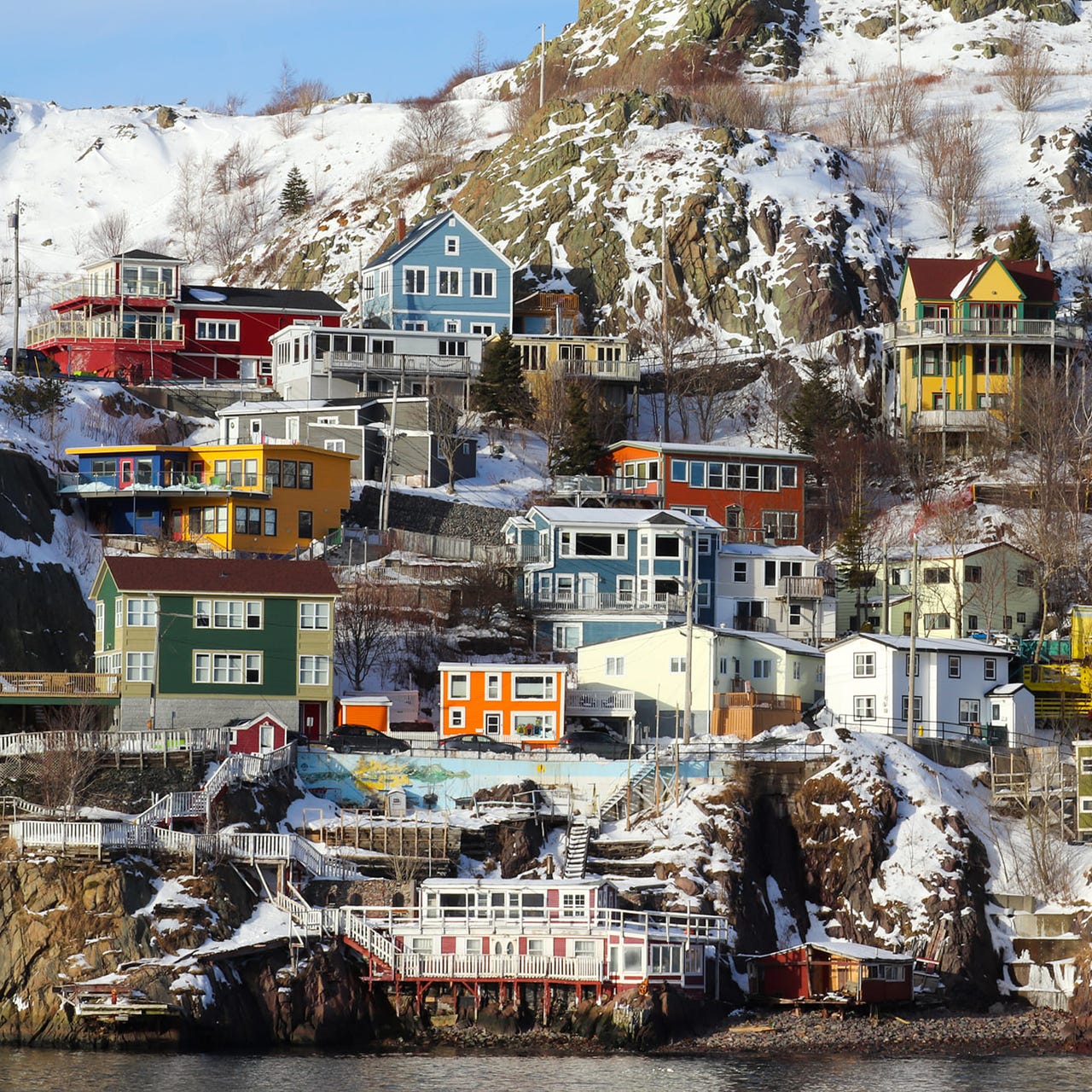
Humans learn by asking questions.
We are naturally curious.
We test.
We explore.
We create.
We ask our parents why the sky is blue, why grass is green, or why we are here. We grow, change, and develop as we learn more about the people around us and how we relate to them. With each question and each answer comes a new question and a new answer and with each experience we make a history of ourselves for ourselves.
Get answers to your questions. Become a paying subscriber.
In the 21st century, Newfoundlanders and Labradorians are curiously incurious. They have no history of themselves for themselves. “Gosling played a significant role in the province's suffrage movement, leading to the first election where women were eligible to vote in 1925.” That’s a sentence in a CBC story a couple of weeks ago about a new statue honouring Armine Nutting Gosling, a woman who campaigned in Newfoundland to get women the right to vote.
“The province’s suffrage movement….”
Newfoundland and Labrador wasn’t a Canadian province in 1925. It was a separate country. Yet the person who wrote the story and the editors who reviewed and approved it saw nothing wrong with a sentence that ignored the facts and much deeper story they contained.
What they missed in that simple sentence is enormous. Newfoundland women could vote by a change to the country’s voting law in 1925. They could only hold a seat in the national legislature, though, if they owned a minimum amount of property. That’s the way the classes who controlled the country ensured their control. But the fact that all women could vote in 1925 is the thing to remember.
In Canada, by contrast, women in some provinces could vote in 1925 and they gained the right to vote in federal elections in 1921. Quebec withheld the franchise from women until 1940. Indigenous women could not vote nor could Indigenous men provincially or federally and would not be able to vote until 1960. The only way an Indigenous women could vote in Canada before then was by marrying someone who was not Indigenous and becoming “assimilated,” that is by losing status under the Indian Act and being considered under the law as being no longer an Indigenous person.
This stark difference between Newfoundland and Canada before 1949, particularly when it came to Indigenous people, is worth remembering no matter how hard some people try to erase the reality of those differences for their own purposes. In the same way, it’s worth remembering that even in 1925, Newfoundland was well behind the rest of the Empire, including Britain itself and most Canadian provinces when it came to voting rights for women. Women gained the right to vote but that class control stayed, at the very least symbolic of the stifling, incurious culture that prevented Newfoundland from changing and succeeding. Within five years the country would be in financial peril - already many members of the elite had decided in 1925 that dictatorship of the fascist kind was the only way to save the country - and in less than a decade, the country would give up self-government in favour of an appointed commission. These things are connected but that larger context is missed entirely by people who simply do not know and do not care to know.
These comments appear for the first time on the eve of Canada Day 2025 in Newfoundland and Labrador. It is also something called Memorial Day, which exists solely in the minds of the people who decided - sometime after 1949 - that they would mark the anniversary of the slaughter on the Somme in 1916 on a new, entirely made up date to honour all of Newfoundland and Labradors dead from any war before or after the Great War. The real one is supposed to be the Sunday beforehand, in the British fashion of such things, and it is called Commemoration Day.
I cannot tell you when Commemoration Day was last marked as such but certainly the day would be some time before 1949. For the longest while, the whole Canada Day versus Memorial Day thing was alive while some townies pretended to be nationalists as part of a political fight. They gave up about the time of the party Danny Williams never gave and people settled into laying a few wreaths in the morning and then partying in the afternoon.
What goes on in the morning ceremony these days at the National War Memorial is essentially a cosplay routine. A pantomine. A put on. People lay wreaths on behalf of groups that do not exist to mark a single battle out of a war that transformed Newfoundland and Labrador utterly but with no real recognition of any of that transformation or other wars or others service. Commemoration Day - the Newfoundland and Labrador equivalent of ANZAC Day or November 11 or the American Memorial Day - has been simply discarded, full stop.
Whatever we will see on July 1st is entirely about Newfoundland and Labrador today and has no more connection to the past at it actually occurred than telling everyone that the province of Newfoundland gave women the vote in 1925, when it was in fact the Dominion of Newfoundland that did so. The July 1st dress-up in the morning of Canada Day is some sort of status symbol and in many respects the elaborate ceremony of the repatriation of the remains of an unknown soldier for the Great War to Sin Jawns for interment at the National War Memorial last year was more to do with celebrating the cult of slaughter than anything else.
It fit with the disconnection of people from their past. Having Andrew Furey, his wife, and only one of his children pretend to be the family of the Unknown was fitting, not because it is symbolic or typical of what happens with these sorts of things but because in the 21st century Newfoundland and Labrador has become very much an authoritarian, paternalistic place that people a century ago would simply not recognize at all. The other memorial, the university created a century ago, is also lost with the latest wrecking ball swing at it being the effort to change the name and the association with war in any way. The Mainlanders and other Come-from-Aways now running the place chucked the National Anthem overboard a couple of years ago, grudgingly reinstated it for the centenary but inevitably they will revisit the whole thing again and the name Memorial University and the National Anthem will be gone for good.
As you look forward to the holiday on July 1st and you live in Newfoundland and Labrador, especially if you and generations before you were born here, make some time after you’ve downed the last bit of barbecue, chugged the last ale, and sipped the last wine and think about where we’ve come from and where we are going. We are in the sad state we are today because in the first 25 years of the 21st century we have forgotten who we are and where we came from. We are not merely disconnected from our individual and shared past but alienated from it and from one another in the present.
Our grandparents and great grandparents took back their country in 1948 and chose to become part of Canada without surrendering who they were as a distinct people and who they had been. In the first 23 years of Newfoundland and Labrador as a province of Canada, Newfoundland and Labrador experienced as profound and as rapid a change as any place in the world on the way to the prosperity that was very much the dream of the 1948 referenda.
In the past 23 years, we have both achieved all they dreamt of and tossed it aside with frightening carelessness, economically, politically, and socially. If the people behind the Churchill Falls project in the 1960s and 1970s believed they were assuring the very bright future for which Newfoundlanders and Labradorians dreamed of 23 years before that, then the people running Newfoundland and Labrador for the past 23 years took us very much in the opposite direction again.
There is no small irony that the Churchill Falls deal that came at the end of that first 25 years after Confederation was profitable and beneficial to Newfoundland and Labrador despite all the financial and legal and political forces arrayed against us and yet, the new Churchill Falls deal that has come 23 years into this Age of Celebritocracy is a sell-out of all those benefits and the hopes and aspirations of earlier generations. The first deal came from people who had fought, and endured, and rebuilt countless times personally and nationally. The second came from people who believe that a Screech-in is a venerated, ancient tradition and who defend the embarrassing display because of its “undeniable popularity with CFAs and tourists,” as one fellow put it on social media.
Who do we think we are?
Who do they think *they* are?
It’s worth letting that sit with you for a while.







